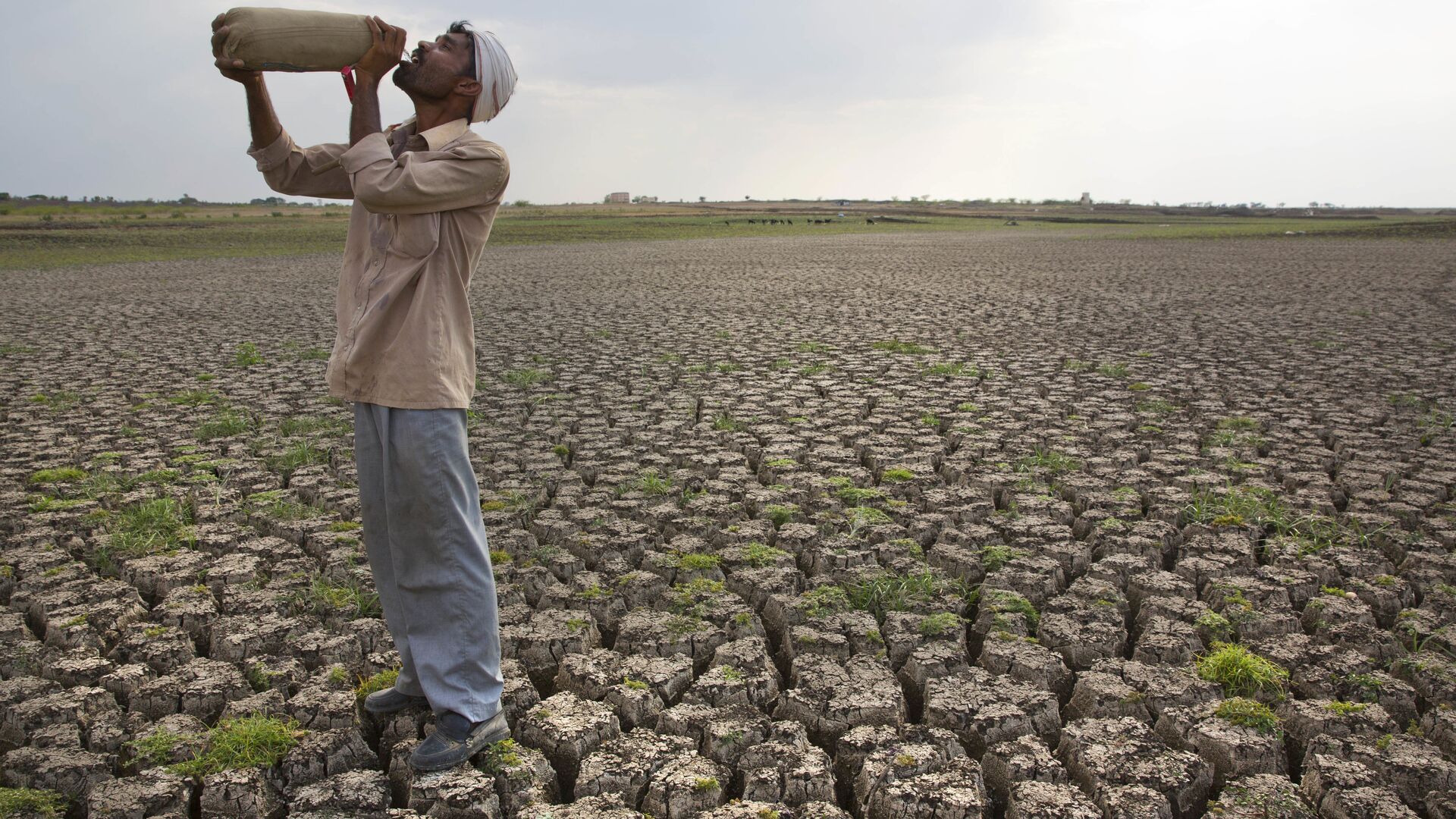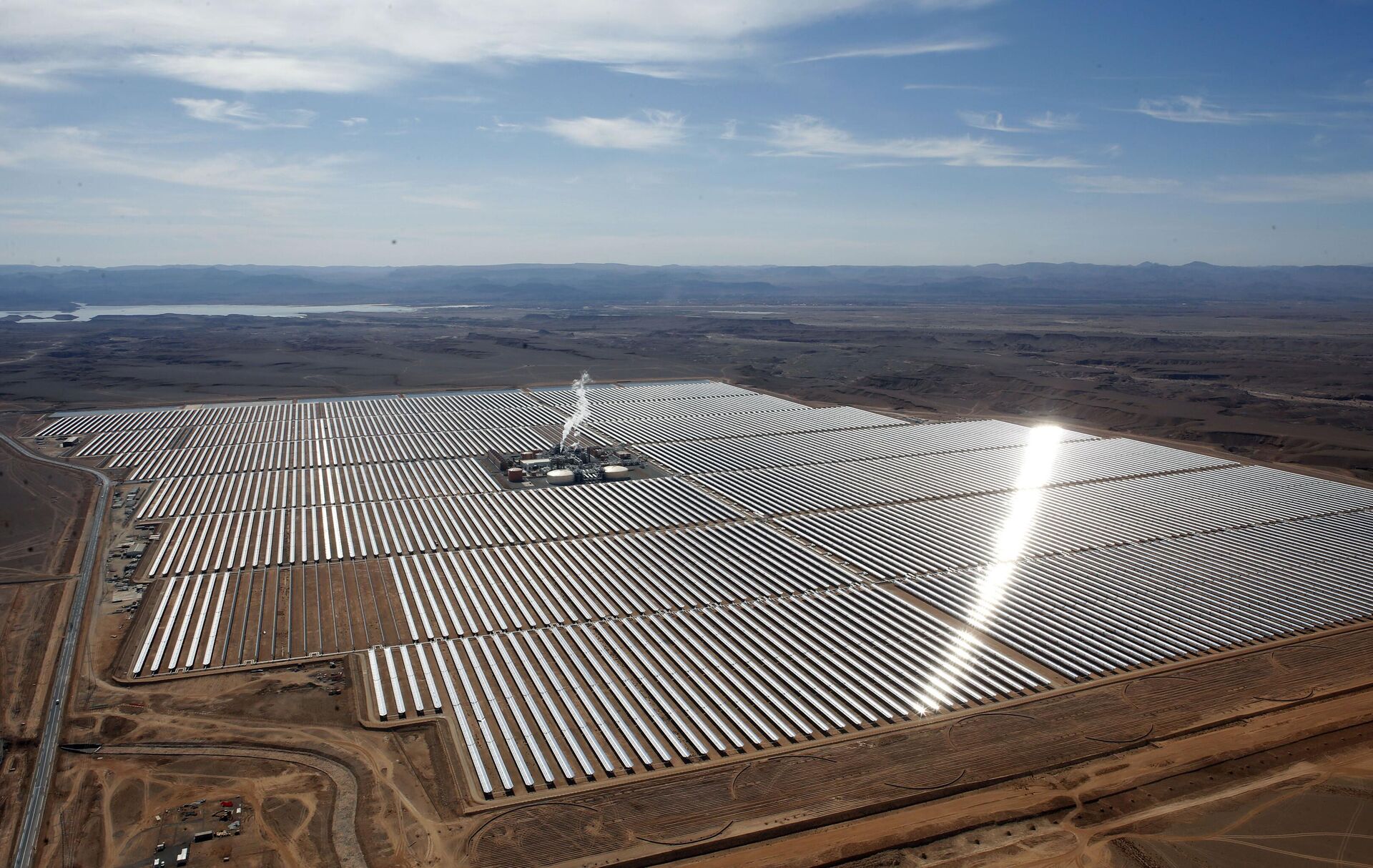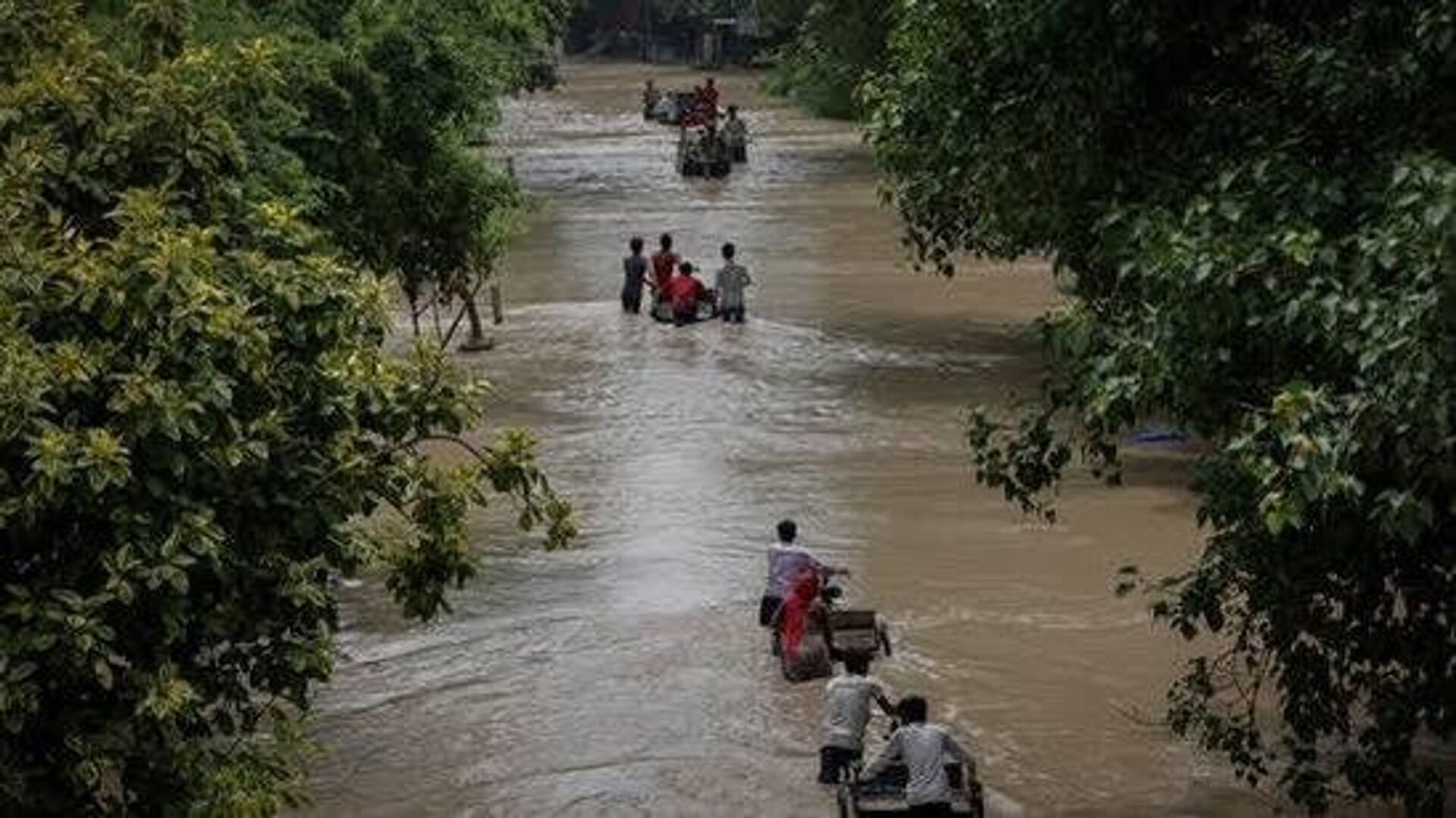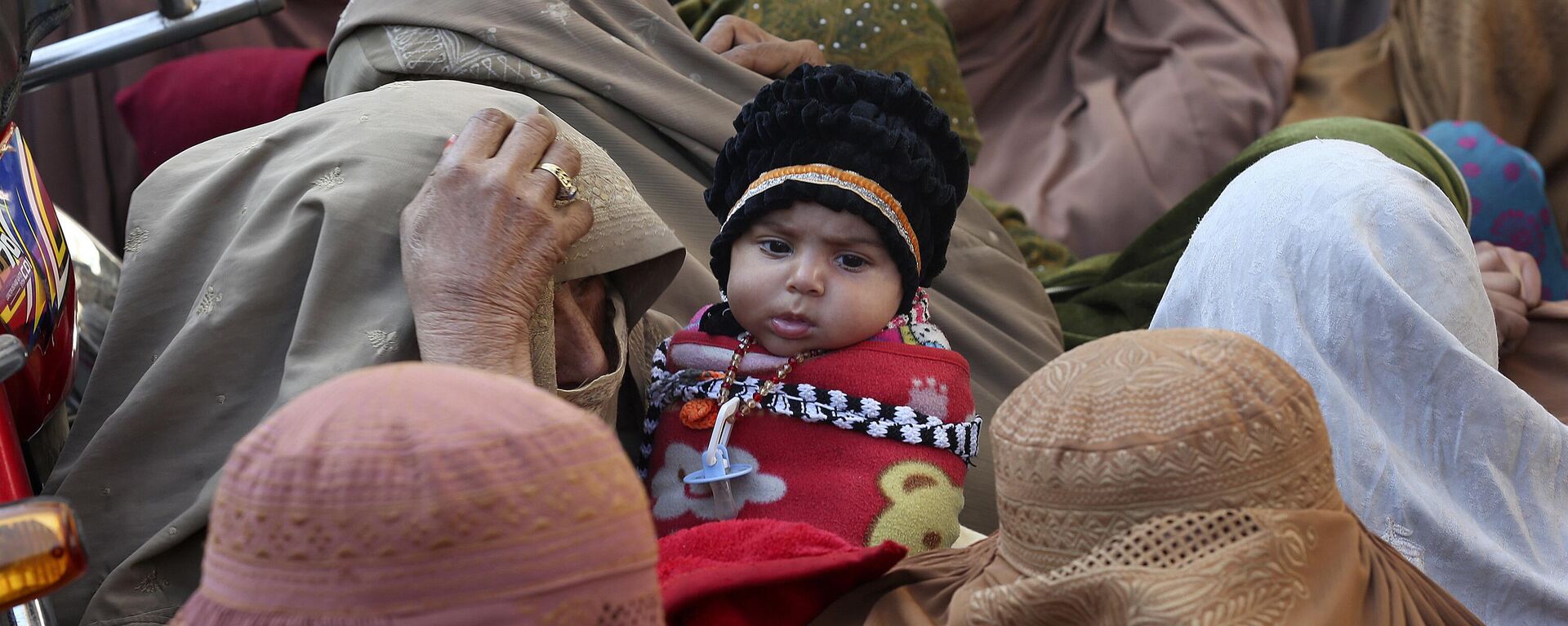https://sputniknews.in/20231130/west-arm-twisting-global-south-on-climate-change-experts-5647672.html
West Arm-Twisting Global South on Climate Change: Experts
West Arm-Twisting Global South on Climate Change: Experts
Sputnik India
The United Nations (UN) Climate Change Conference (COP28) kicked off under the United Arab Emirates (UAE) presidency in Dubai on Thursday.
2023-11-30T17:14+0530
2023-11-30T17:14+0530
2023-12-01T12:26+0530
india
global south
the united nations (un)
european union (eu)
nasa
china
us
hydrogen
collective west
developing nations
https://cdn1.img.sputniknews.in/img/07e7/0a/1a/5085344_0:240:5383:3268_1920x0_80_0_0_c4cc809abd3ccb025ed768f669a73324.jpg
The United Nations (UN) Climate Change Conference (COP28) kicked off under the United Arab Emirates (UAE) presidency in Dubai on Thursday.The COP28 conference, which will be presided by UAE's Special Envoy for Climate Change Sultan Ahmed Al-Jaber, takes place at a decisive moment in the ongoing global fight against climate change.Around 160 global leaders are expected to be in attendance at the event scheduled to run till 12 December.According to a statement from the UN on the eve of the COP28 Summit, the world isn’t on track to limit the global temperature rise to 1.5 degree Celsius by the end of the 21st century, which was a key pledge at the COP21 held in Paris.Most of the developed nations, which bear a “historic responsibility” for climate change have agreed to reach net-zero GHGs by the 2050 deadline.The Summit also marks the conclusion of the first “global stoke-take” (GST) since the historic Paris Summit in 2015.However, deep differences seem to persist between the developing nations and the rich countries of the West on major issues shaping the global climate fight, with apparent unwillingness of the developed nations to fund global climate transition being a major matter.While the UN and the UAE presidency have expressed hope that the ‘Transitional Loss and Damage Fund’ announced at COP27 in Sharm al-Sheikh will take off with financing commitments, the rich countries are yet to deliver on their 2009-era pledge of mobilising $100 billion every year towards climate transition.The pledge was expected to be met by 2020, and is expected to be a major agenda item at the COP28.Why Does West Bear Historical Responsibility For Tackling Climate Change?Countries like India and China, the fastest-growing economies and major emitters of Greenhouse Gases (GHG), have backed the principle ‘common but differentiated responsibilities’ to achieve the climate change goals.Based on historical emissions’ trends, the onus of fixing global warming lies on the developing countries of North America and Europe, most of which are part Organisation of Economic Cooperation and Development (OECD) and are listed in Annexure-I of the United Nations Framework Convention on Climate Change (UNFCCC).Africa as a continent has the lowest historical and current emissions.What’s worse is that the Global South, particularly Africa and small-island developing states (SIDS) are bearing the brunt of the climate change effects at present.In fact, the COP28 Summit is taking place after the Earth witnessed its "hottest summer" on record since 1880, according to NASA.Positions of India & China on Climate TransitionThe developing nations, led by China and India, have been pushing back against pressure exerted by rich countries’ to increase the intensity of reducing GHG emissions by phasing out commodities such as coal, which are a critical part of India’s energy mix.Kwatra underscored that India had already “upgraded” its NDCs and advanced timelines to achieve net-zero emissions by 2070.“We are well on our way to achieve the upgraded NDC targets announced last year,” he stated.The senior Indian diplomat described India’s climate action plan as “pro-active” and noted that it was “taking pro-active” measures.In the same vein, Beijing has assured the global community that it would “make the steepest cuts in the world” as far as GHG emissions are concerned.'Arm-Twisting' by Western Countries on Climate ChangeAshwani Mahajan, the co-convenor of Indian economic advocacy group Swadeshi Jagran Manch (SJM), told Sputnik India that the rich countries have for long sought to exploit the climate change to their own economic and political benefits.“However, the era of arm-twisting by the West is behind us now. We are now witnessing countries like India taking a leadership role in developing and sharing green technologies, be it in Green Hydrogen, solar technology or Electric Vehicles (EVs),” Mahajan noted.
https://sputniknews.in/20230109/pakistan-doubly-victimized-by-climate-change--global-financial-system-un-425006.html
india
global south
china
us
Sputnik India
feedback.hindi@sputniknews.com
+74956456601
MIA „Rossiya Segodnya“
2023
Dhairya Maheshwari
https://cdn1.img.sputniknews.in/img/07e6/0c/13/138962_0:0:641:640_100x100_80_0_0_2cb44360dbcdf6d84bf4b299cd045917.jpg
Dhairya Maheshwari
https://cdn1.img.sputniknews.in/img/07e6/0c/13/138962_0:0:641:640_100x100_80_0_0_2cb44360dbcdf6d84bf4b299cd045917.jpg
News
en_IN
Sputnik India
feedback.hindi@sputniknews.com
+74956456601
MIA „Rossiya Segodnya“
Sputnik India
feedback.hindi@sputniknews.com
+74956456601
MIA „Rossiya Segodnya“
Dhairya Maheshwari
https://cdn1.img.sputniknews.in/img/07e6/0c/13/138962_0:0:641:640_100x100_80_0_0_2cb44360dbcdf6d84bf4b299cd045917.jpg
climate change, cop28 summit, global warming, climate change effects, loss and damage fund, paris summit goals, rising sea levels, climate financing, cop 28 news, india net zero emissions, floods in pakistan, record heatwave, drought in africa, climate news
climate change, cop28 summit, global warming, climate change effects, loss and damage fund, paris summit goals, rising sea levels, climate financing, cop 28 news, india net zero emissions, floods in pakistan, record heatwave, drought in africa, climate news
West Arm-Twisting Global South on Climate Change: Experts
17:14 30.11.2023 (Updated: 12:26 01.12.2023) Despite having contributed significantly to global warming, the West has shied away from its responsibility to fund the transition to green energy in the Global South or reduce greenhouse gas emissions.
The United Nations (UN) Climate Change Conference (COP28) kicked off under the United Arab Emirates (UAE) presidency in Dubai on Thursday.
The COP28 conference, which will be presided by UAE's Special Envoy for Climate Change Sultan Ahmed Al-Jaber, takes place at a decisive moment in the ongoing global fight against climate change.
Around 160 global leaders are expected to be in attendance at the event scheduled to run till 12 December.
According to a statement from the UN on the eve of the COP28 Summit, the world isn’t on track to limit the global temperature rise to 1.5 degree Celsius by the end of the 21st century, which was a key pledge at the COP21 held in Paris.
In fact, a report published by UN Climate Change has warned that the ‘nationally determined contributions (NDCs)’, or climate action plans of member states, would reduce greenhouse gas emissions (GHGs) to 2 percent below the 2019 levels, while a 43 percent reduction is needed.
In rough terms, around 22 gigatonnes of GHG emissions must be cut to achieve the climate targets.
Most of the
developed nations, which bear a “historic responsibility” for climate change have agreed to reach net-zero GHGs by the 2050 deadline.
Major developing economies like China and India, on the other hand, have set a net-zero target of 2060 and 2070 responsibility.
The Summit also marks the conclusion of the first “global stoke-take” (GST) since the historic Paris Summit in 2015.
According to the UAE presidency, the GST is slated to play a “central role” in the global fight against climate change due to its focus on accelerating emissions cuts, strengthening resilience to climate impacts, and providing the support and finance needed for the transformation”.
However, deep differences seem to persist between the developing nations and the rich countries of the West on major issues shaping the global climate fight, with apparent unwillingness of the developed nations to fund global climate transition being a major matter.
While the UN and the UAE presidency have expressed hope that the ‘
Transitional Loss and Damage Fund’ announced at COP27 in Sharm al-Sheikh will take off with financing commitments, the rich countries are yet to deliver on their 2009-era pledge of mobilising $100 billion every year towards
climate transition.
The pledge was expected to be met by 2020, and is expected to be a major agenda item at the COP28.
What’s worse is that the developing nations need at least 10 times more than the current funding levels to tackle climate change, which has had a disproportionate impact on them despite the fact that the Global South had little or no role to play in fomenting the climate emergency.
Why Does West Bear Historical Responsibility For Tackling Climate Change?
Countries like India and China, the
fastest-growing economies and major emitters of Greenhouse Gases (GHG), have backed the principle ‘common but differentiated responsibilities’ to achieve the climate change goals.
Based on historical emissions’ trends, the onus of fixing global warming lies on the developing countries of North America and Europe, most of which are part Organisation of Economic Cooperation and Development (OECD) and are listed in Annexure-I of
the United Nations Framework Convention on Climate Change (UNFCCC).
According to data visualisation website Our World in Data, the US has emitted nearly 400 billion tonnes of carbon dioxide since 1751, and bears responsibility for a quarter of historical emissions.
The EU, on the other hand, is responsible for 22 percent of the emissions since 1751.
Africa as a continent has the lowest historical and current emissions.
While nations like India and China are big emitters in the current context, their share of historical emissions has been relatively low as compared to rich nations.
What’s worse is that the
Global South, particularly Africa and small-island developing states (SIDS) are bearing the brunt of the climate change effects at present.
According to the Intergovernmental Panel on Climate Change (IPCC), a 1.5 Degree Celsius rise in global temperature would result in "increasing heat waves, longer warm seasons and shorter cold seasons".
"At 2°C of global warming, heat extremes would more often reach critical tolerance thresholds for agriculture and health," according to an IPCC report.
In fact, the COP28 Summit is taking place after the Earth witnessed its
"hottest summer" on record since 1880, according to NASA.
Positions of India & China on Climate Transition
The developing nations, led by China and India, have been pushing back against pressure exerted by rich countries’ to increase the intensity of reducing GHG emissions by phasing out commodities such as coal, which are a critical part of India’s energy mix.
“We are among the few major global economies which are well on its track to complete its obligated NDCs,” Indian foreign secretary Vinay Kwatra said in response to a question from Sputnik India at a press briefing on Thursday.
Kwatra underscored that India had already “upgraded” its NDCs and advanced timelines to achieve net-zero emissions by 2070.
“We are well on our way to achieve the upgraded NDC targets announced last year,” he stated.
The senior Indian diplomat described India’s climate action plan as “pro-active” and noted that it was “taking pro-active” measures.
Kwatra added that even though India’s development would focus on “green technologies”, it would also take into consideration the “development priorities” of India.
In the same vein, Beijing has assured the global community that it would “make the steepest cuts in the world” as far as GHG emissions are concerned.
Chinese foreign ministry spokesperson Wang Wenbin however pointed out that “mitigation efforts from developed countries weren’t enough.
“They should take the lead in drastically increasing their efforts in emissions reduction, reach net zero carbon emissions much earlier than 2050,” Wang told a press briefing on Wednesday.
'Arm-Twisting' by Western Countries on Climate Change
Ashwani Mahajan, the co-convenor of Indian economic advocacy group Swadeshi Jagran Manch (SJM), told Sputnik India that the rich countries have for long sought to exploit the climate change to their own economic and
political benefits.
“The technologically-advanced rich nations have for decades possessed technological know-how towards transitioning to innovative and
renewable sources of energy. They have possessed edge over the developing nations of Global South and have been seeking to leverage this to their advantage in the dealings with the developing countries,” the Indian activist remarked.
“However, the era of arm-twisting by the West is behind us now. We are now witnessing countries like India taking a leadership role in developing and sharing green technologies, be it in
Green Hydrogen, solar technology or Electric Vehicles (EVs),” Mahajan noted.





